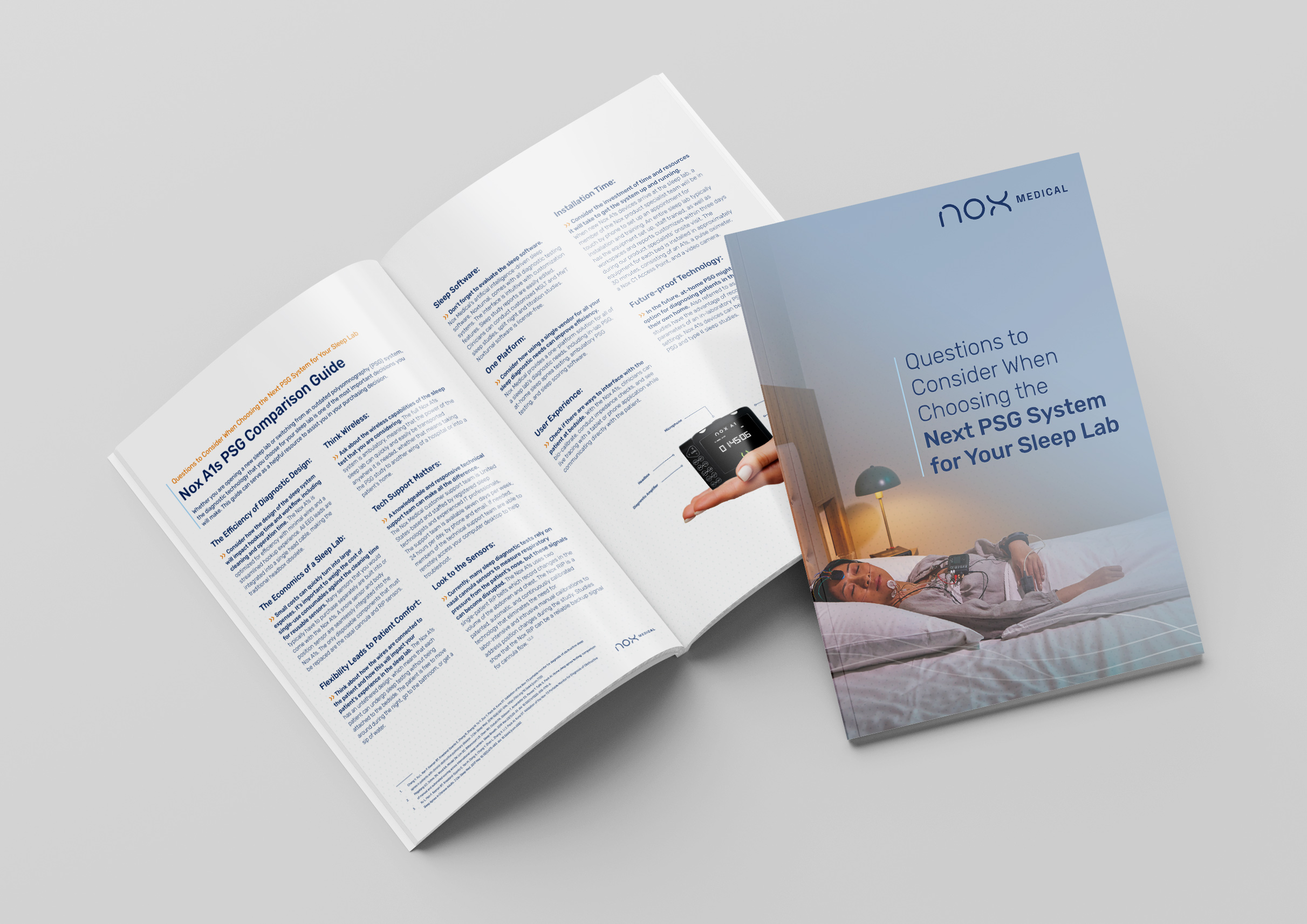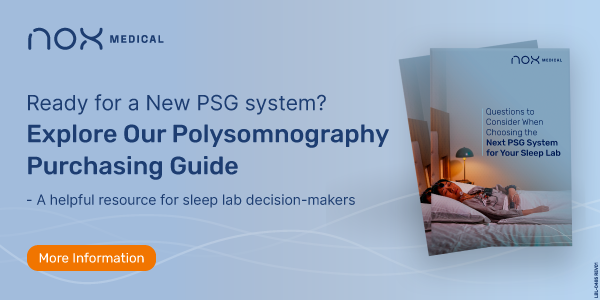Nox Medical recently released a polysomnography (PSG) comparison guide, a comprehensive resource to assist sleep professionals in making informed decisions when selecting a new PSG system.
Whether you are establishing a new sleep lab or upgrading from an outdated PSG system, choosing the right diagnostic technology is paramount. Our PSG comparison guide covers essential considerations for selecting a new PSG system, from hookup time to technical support, and overall workflow impact. Discover how the Nox A1s PSG system matches up with your sleep lab’s needs, a system that is designed for patient comfort and optimized workflow efficiency with its advanced hardware and software features.
The PSG comparison guide is structured to assess critical aspects including its impact on current workflow, patient comfort, software capabilities, and future readiness. It features a comprehensive system comparison chart highlighting the technical specifications of the Nox A1s PSG system and its advanced features.
Furthermore, recognizing the importance of exceptional customer service, the guide includes a comparison chart consisting of various service aspects, including response time and the expertise of sleep professionals on the support team.
By providing clarity and saving time in the decision-making process, we hope our PSG comparison guide serves as a valuable resource for sleep professionals. We invite you to explore the guide and discover how the Nox A1s PSG system can elevate your sleep lab’s performance and patient care.
Please visit the comparison guide page to download the guideline.
Topic: Nox A1 PSG System






